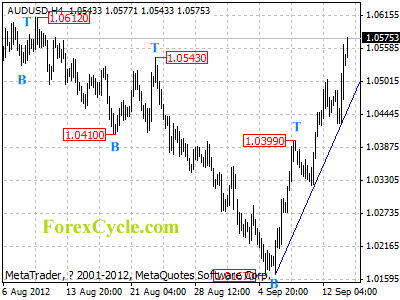By TraderVox.com

Tradervox.com (Dublin) – German Court ruling have offered support for the European Central Bank bond buying program which may quicken argument for Spain to request bailout from the ECB. Analysts are now evaluating the ECB’s ability to resolve the crisis. Spain has been reluctant in requesting for bailout, seeking to get aid with no strings attached. On the other hand, creditors such as Germany are unwilling to lend more money without stringent conditions. Mario Draghi, the European Central Bank President is waiting for the two sides to resolve these differences in order start buying sovereign debt on the market.
Yesterday’s ruling by the German Court is seen as a milestone step towards dealing with the debt crisis in euro area. The market will now turn its focus on Spain, which is expected to dominate discussions by finance ministers, who meet tomorrow in Cyprus. Pier Carlo Padoan, the Chief Economist at Organization for Economic Cooperation and Development, said that the ruling gives Europe a powerful financial firewall. He also noted that while this does not in itself solve the problem, it is a big step in the right direction. The Finance Ministers meeting agenda will also include Greece concerns about its aid terms and efforts by Cyprus to escape a bailout.
In addition, finance ministers will also look into a proposal presented yesterday, of making the ECB a bank-supervision system, which has been labeled as a “federation of nation states” by the European Commission President Jose Barroso. Developments in Europe’s debt crisis fighting efforts pushed stocks higher, as risk appetite boosted commodity related currencies. Spain’s 10-year borrowing cost dropped giving Prime Minister Mariano Rajoy confidence that his country can come out of the recession without asking for bailout from ECB.
Spain is unwilling to ask for bailout with the current conditions of budget cuts and economic reforms. Rajoy, Spain’s Prime Minister has insisted that his country has done enough to deserve help from the ECB. On the other hand, German Chancellor, Angela Merkel has insisted on budget cuts for countries asking for bailout positioning her as an opposition for Spain.
Disclaimer
Tradervox.com is not giving advice nor is qualified or licensed to provide financial advice. You must seek guidance from your personal advisors before acting on this information. While we try to ensure that all of the information provided on this website is kept up-to-date and accurate we accept no responsibility for any use made of the information provided. Opinions expressed at Tradervox.com are those of the individual authors and do not necessarily represent the opinion of Tradervox.com or its management.
Article provided by TraderVox.com
Tradervox.com is a Forex News Portal that provides real-time news and analysis relating to the Currency Markets.
News and analysis are produced throughout the day by our in-house staff.
Follow us on twitter: www.twitter.com/tradervox

